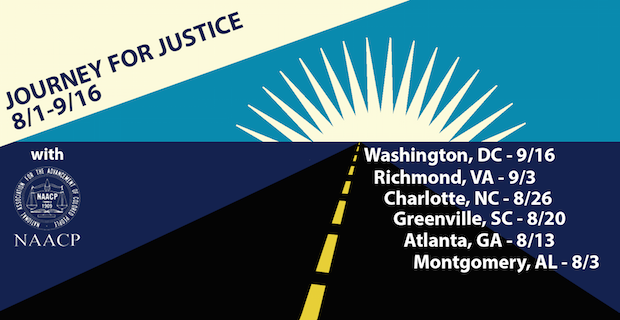Marching toward a World of Justice
Rabbi Tarfon taught: “You are not required to complete the work, but neither are you at liberty to abstain from it.
What is the work we are called to do? Along with nearly two hundred of my colleagues, I was honored to participate in America’s Journey for

